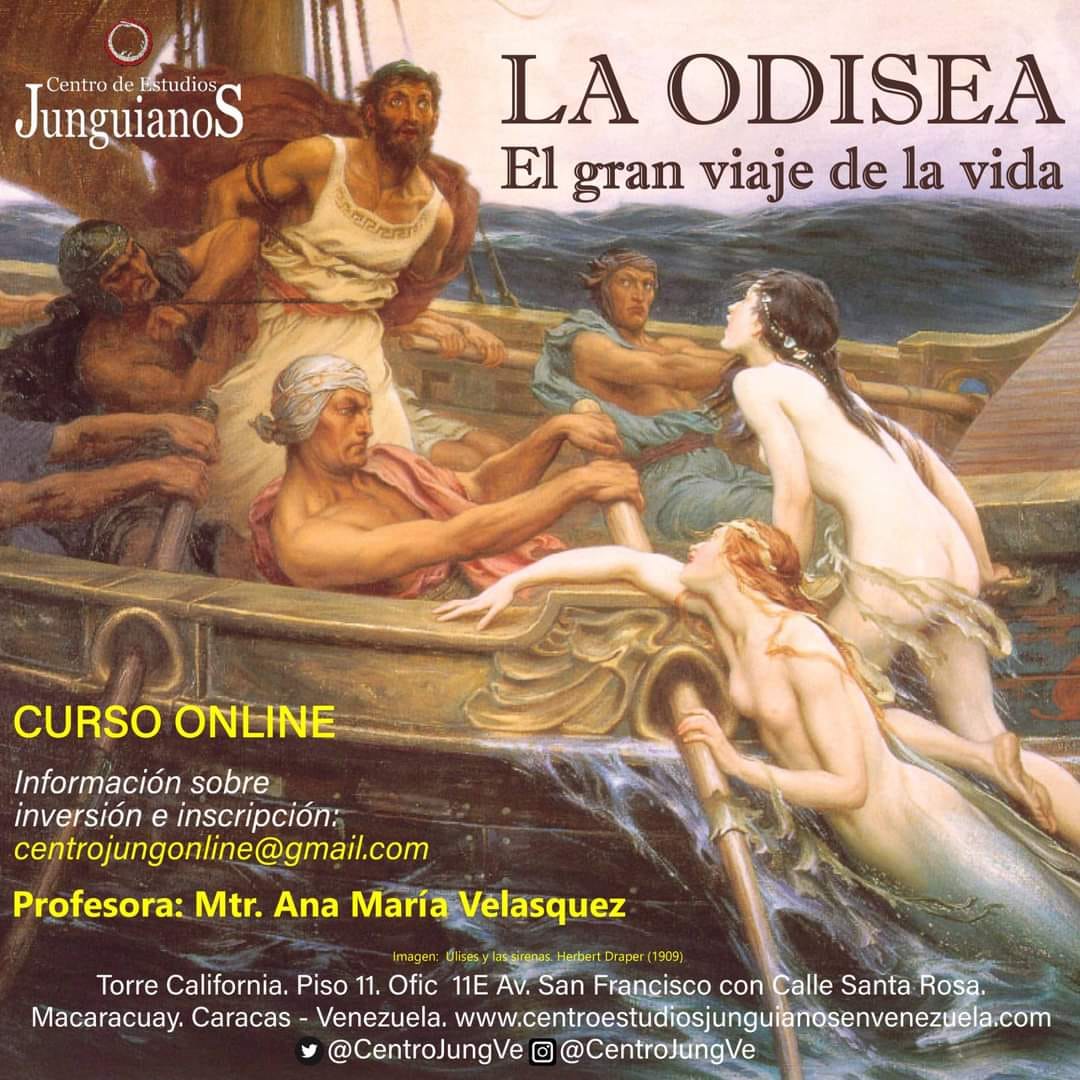Fechas: 15 de septiembre -3 noviembre 2022 | Horario: jueves 11:00-12:30 pm
Escrita en el siglo VIII aC, la Odisea, de Homero, es una obra fundamental de la cultura occidental. Cuenta la historia de un viaje de regreso, nostos, durante el cual el héroe encontrará grandes dificultades y experimentará el agón heroico, es decir, la lucha por la supervivencia. Enfrentará monstruos, cíclopes, insinuantes sirenas, conocerá hermosas ninfas, descenderá al Hades, el lugar de los muertos, en busca de respuestas, y, finalmente, llegará a casa, la isla de Ítaca, cuya imagen lo ha sostenido durante su terrible travesía.
El viaje del héroe es la metáfora del viaje de la vida. La gesta de Odiseo, Ulises para los latinos, es una especie de “guía” del alma para comprender las etapas de la existencia.
Durante la travesía se afinan las mejores cualidades, la inteligencia, en primer lugar. Ocurre una transformación personal y se da la toma de conciencia para obtener una comprensión profunda de un ethos(una forma de ser particular) y de un pathos(un destino o un sufrimiento propio que define la experiencia).
Durante el curso se introducirá a las estudiantes en los conceptos griegos fundamentales: polis, kratos, agón, ethos, pathos, katarsis, máscara (persona), hybris, areté, archetypus, anima, ánimus.
El curso tendrá una visión arquetipal del viaje, de los dioses y de las diosas que aparecen en la obra homérica, y de los personajes.
En torno al héroe siempre habrá un adivino o una hechicera, o alguien interpretará un presagio o verá símbolos que quieren decir alguna cosa importante. Se estudiará, asimismo, esta cualidad mítico-simbólica que va a estar presente en toda la obra.
Para información e inscripciones centrojungonline@gmail.com
The Odyssey: The Great Journey of Life
Written in the 8th century BC, Homer’s Odyssey is a fundamental work of Western culture. It tells the story of a return journey, ours, during which the hero will encounter great difficulties and experience heroic agony, that is, the struggle for survival. He will face monsters, cyclops, insinuating mermaids, meet beautiful nymphs, descend into Hades, the site of the dead, in search of answers, and, eventually, he will arrive home, the island of Ithaca, whose image has sustained him during his terrible travesty it was.
The hero’s journey is the metaphor for the journey of life. The gesture of Odysseus, Ulysses for Latinos, is a kind of “guide” of the soul to understand the stages of existence.
During the journey the best qualities are tuned, intelligence, first. Personal transformation occurs and awareness is given to gain a deep understanding of an ethos (a particular way of being) and a pathos (a destiny or own suffering that defines experience).
During the course students will be introduced to the basic Greek concepts: polis, kratos, agon, ethos, pathos, katarsis, mask (person), hybris, areté, archetypus, animus.
The course will have an archetypal view of the journey, of the gods and goddesses appearing in the homeric work, and of the characters.
Around the hero there will always be a fortune teller or a sorcerer, or someone will interpret an omen or see symbols that want to say something important. This mythic-symbolic quality that will be present throughout the work will be studied.


